Patrick Namulisa, recipient of the 2024 Secondment Program award, has completed the program and wrote the following to share with the FLUXNET community:
_____________________
Forests are the primary sites of carbon exchange between the terrestrial biosphere and the atmosphere, and because of the magnitude of the carbon fluxes in tropical forests, these ecosystems are essential part of the conversation on the global carbon cycle and climate change. Historically, these ecosystems have been known to be carbon sinks but recent trends indicate a shift to no or low sink capabilities, to sources in many of tropical forests. Obviously, these different orientations and findings are pushing an increased interest from ecosystem ecologist to seek for a deeper understanding the drivers and patters behind these shifts and carbon dynamics. Despite this increasing interest, research in the Congo Basin, the second largest rainforest, is still lagging behind and the region the least studied and understood of all the three main tropical basins although there have been some progress in the past few years. The limited research from the region available showcase different trends, patterns and drivers of carbon dynamics which enforces the strong need for more research, tools and technologies to advance knowledge of carbon dynamics in this critical region.
Therefore, I was overjoyed early this year in May to embarked on this explorative journey where I aimed to set more than just toes into the ever-growing world of Flux tower measurements with Eddy Covariance techniques, and see their application in the Congo Basin. This was the start of my two-part FLUXNET Secondment with the CongoFlux Research Team at Ghent University, in Ghent, Belgium and the CongoFlux Research Site, in Yangambi, DR Congo. My Secondment was in collaboration with Profs Pascal Boeckx, Hans Verbeeck and Marijn Bauters and their research groups to advance the research project investigating the patterns of seasonality and selected environmental drivers on the net primary ecosystem production and carbon balance in the Congo Basin.
The first part starting from May 2024 in Ghent, Belgium was an incredible time to get exposed more to the theoretical framework of eddy covariance and flux towers in general and the work at the 57m tall and sole Flux Tower in the Congo Basin forests, and engage in meaningful and challenging discussions about carbon dynamics in the Congo Basin from what we know now, limitations, challenges, opportunities, and, of course, scientific gaps to explore. This first stay was indeed critical in helping clarify my ideas and plans as I engage profoundly in research in Congo.
The second part, in July 2024 in Yangambi was equally challenging and rewarding; from getting a better sense of the work being caried out in Yangambi by the multiple partners, PIs and students involved with CongoFlux to the day-to-day interactions with the technician in charge of maintenance at the Flux Tower. This part of my secondment was focused on feasibility and state of resources available for the research agenda, including maintenance for point dendrometers that we plan to incorporate in my work on carbon assimilation.
Quantifying carbon dynamics; assimilation and losses, the net ecosystem exchange, and net primary production in the Congo Basin and the impact seasonality of light and rainfall on those dynamics is a central piece to advancing our knowledge of on the carbon cycling in the Congo Basin and the role of this Basin to regional and global climate over time. My research work is centred around questions related to this and aim to offer key elements to understand more the future role of these forests of the Congo Basin to the global carbon cycling under global change.
I would like to extend my gratitude to the FLUXNET network for the Secondment Award which was pivotal in helping strengthen my collaboration with the CongoFlux Research team and deepen my knowledge on flux tower systems and eddy covariance techniques. After this initial stage and as I evolve with my research and work, I look forward to sharing more with the community about my work on carbon dynamics and seasonality in the Congo Basin.
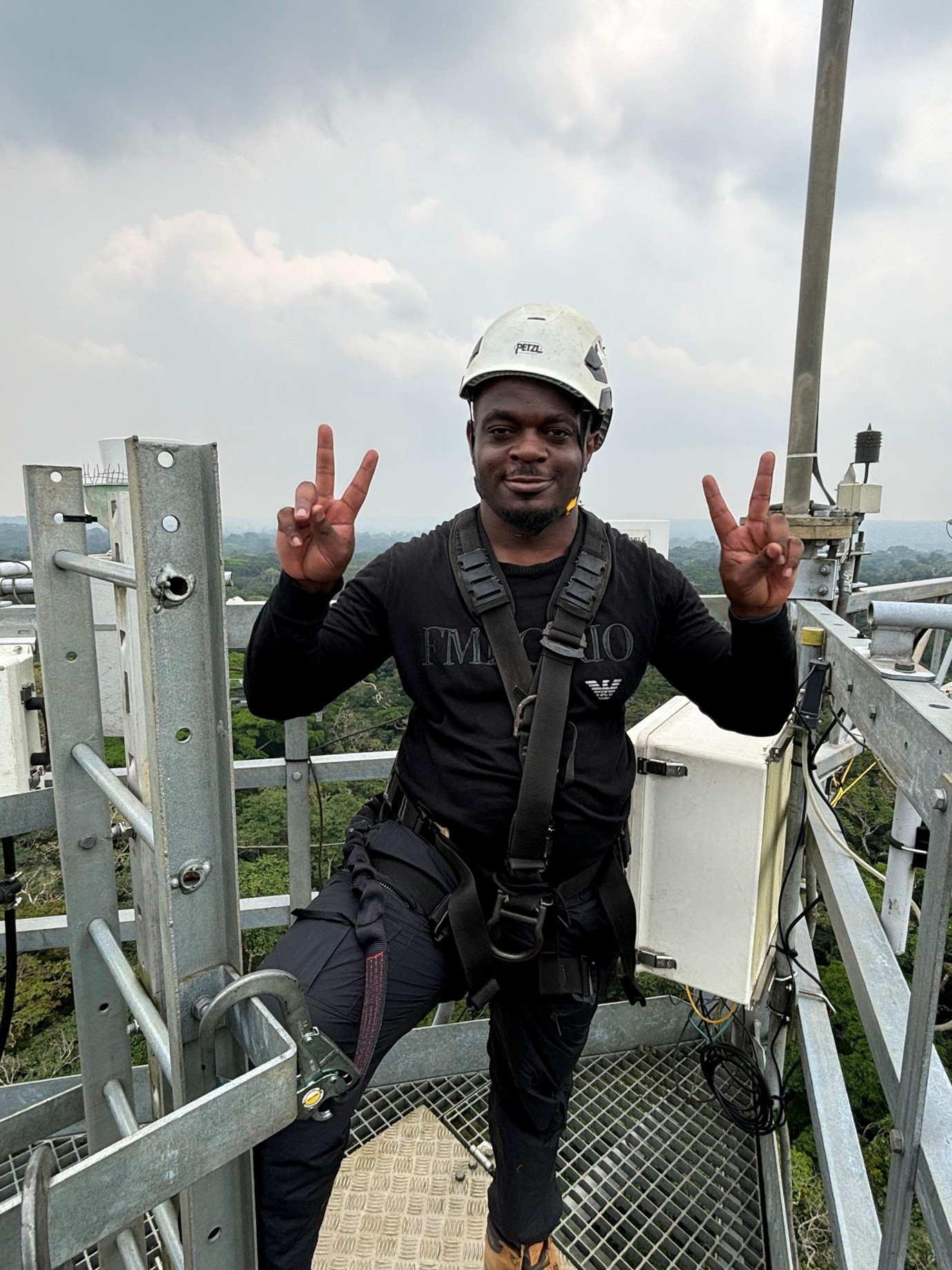
Patrick Namulisa on the Yangambi flux tower
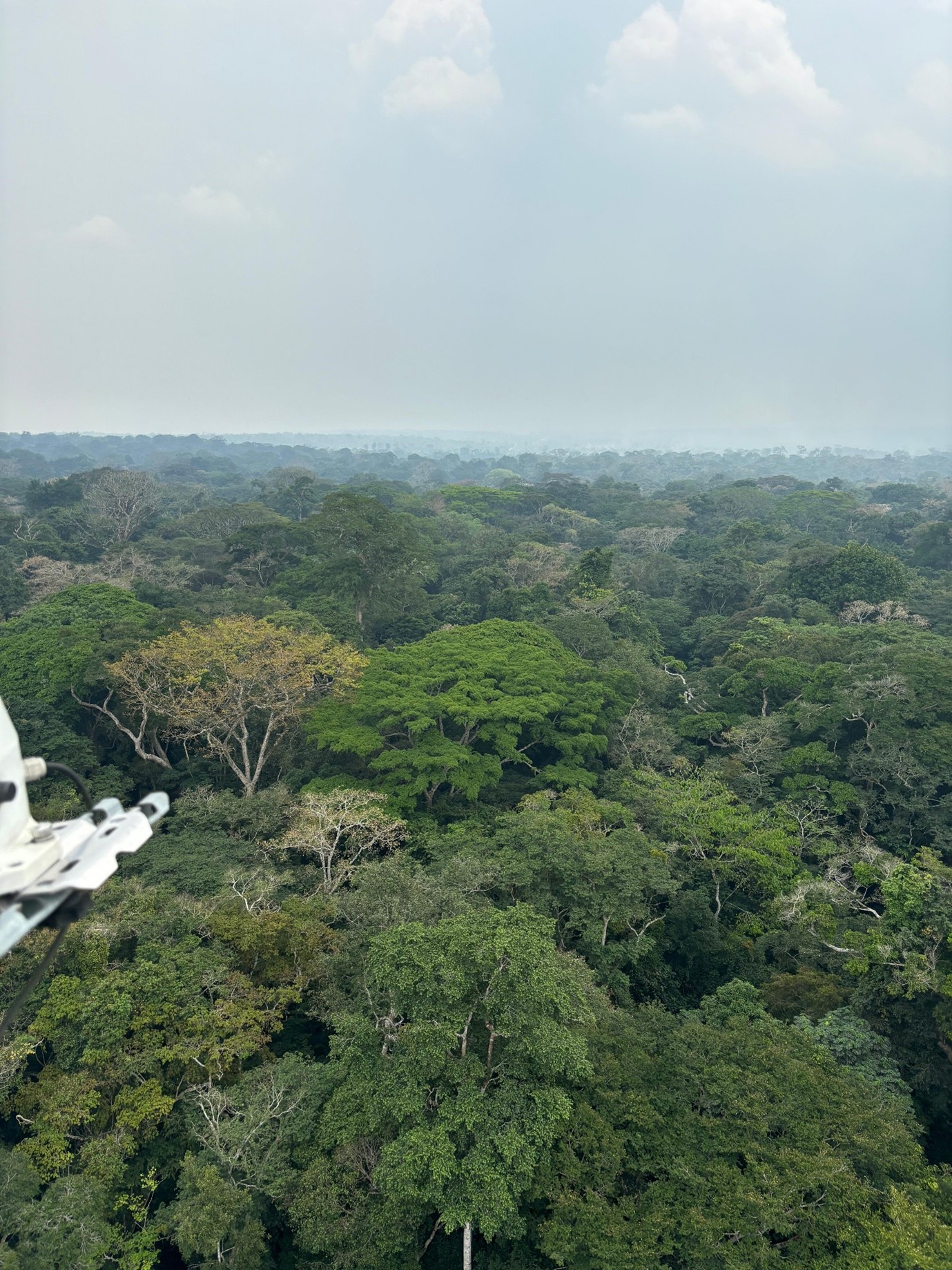
View of the canopy from the top of the Flux Tower in Yangambi, DR Congo
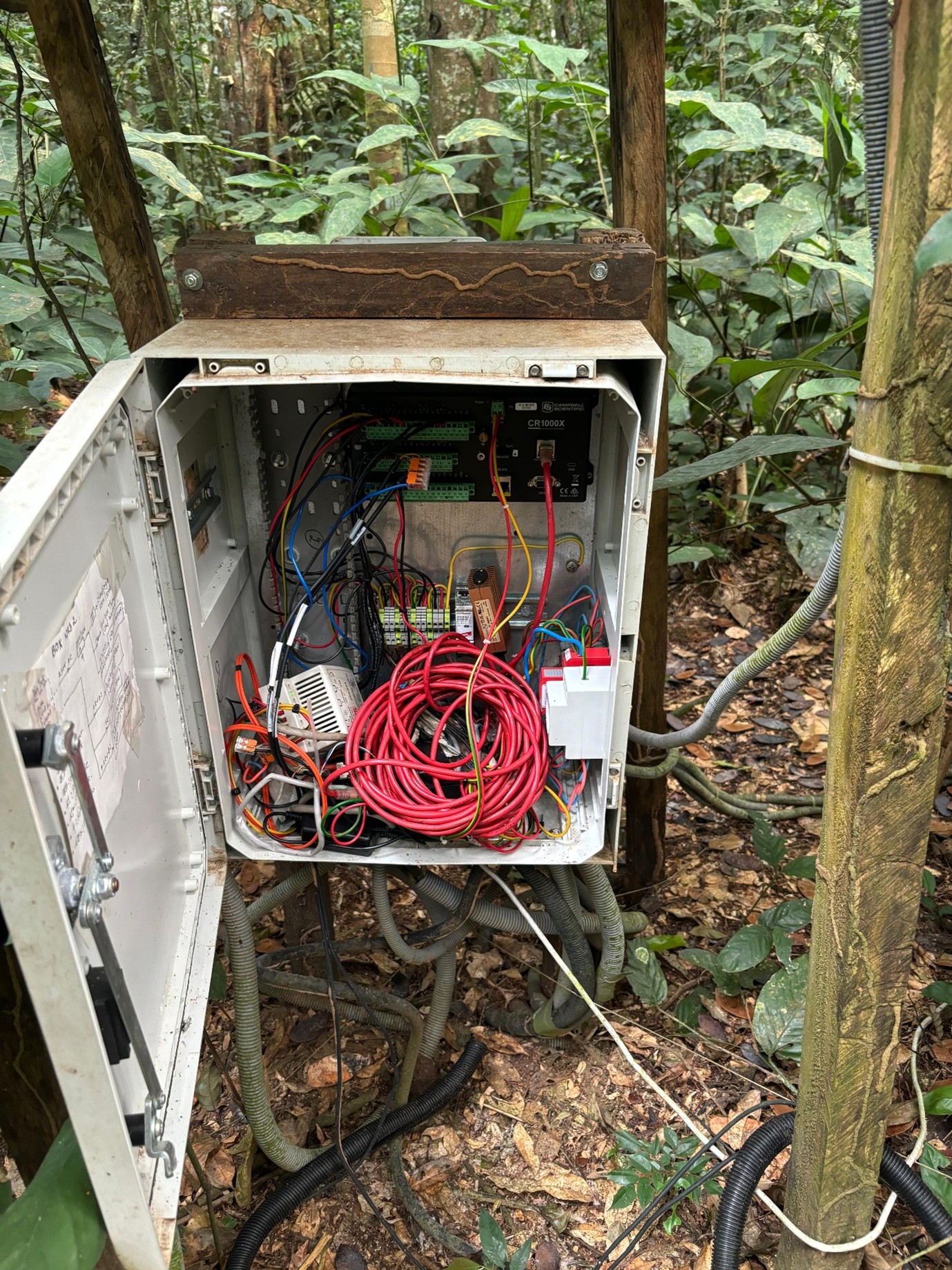
Electrical maintenance for point dendrometers in the Flux tower footprint, Yangambi, DR Congo
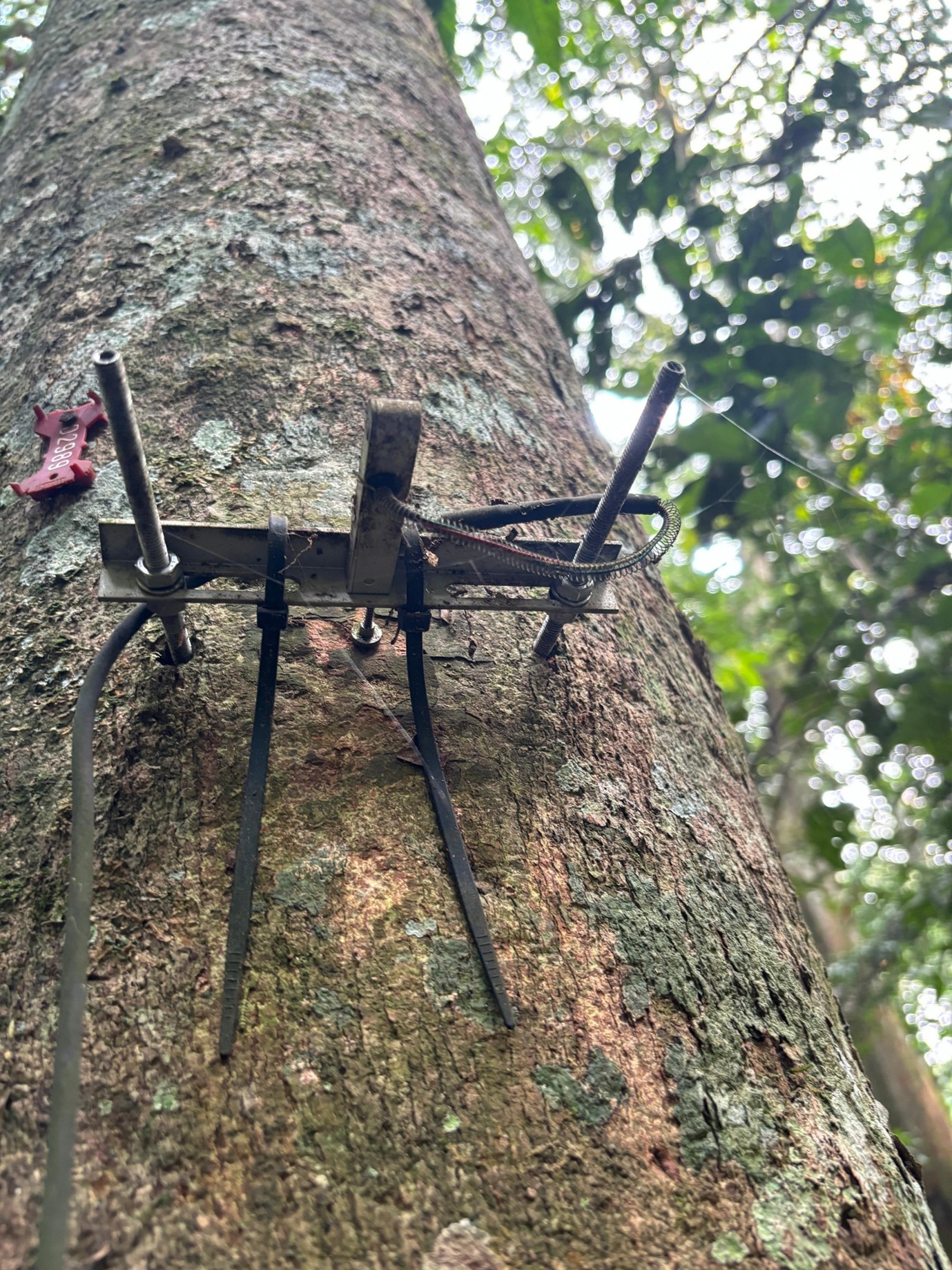
Point Dendrometer under maintenance in the Flux Tower footprint in Yangambi
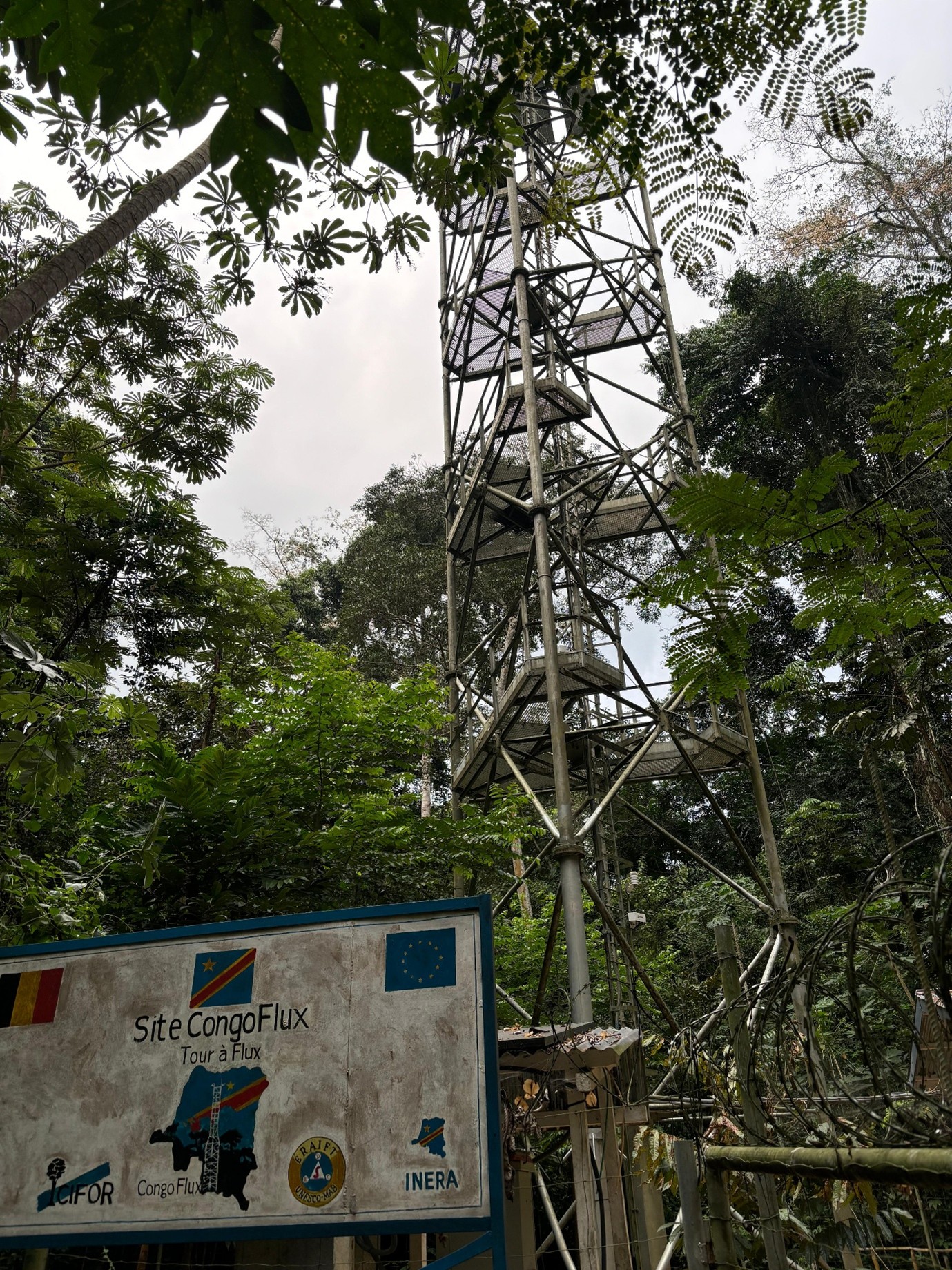
Yangami Flux Tower
